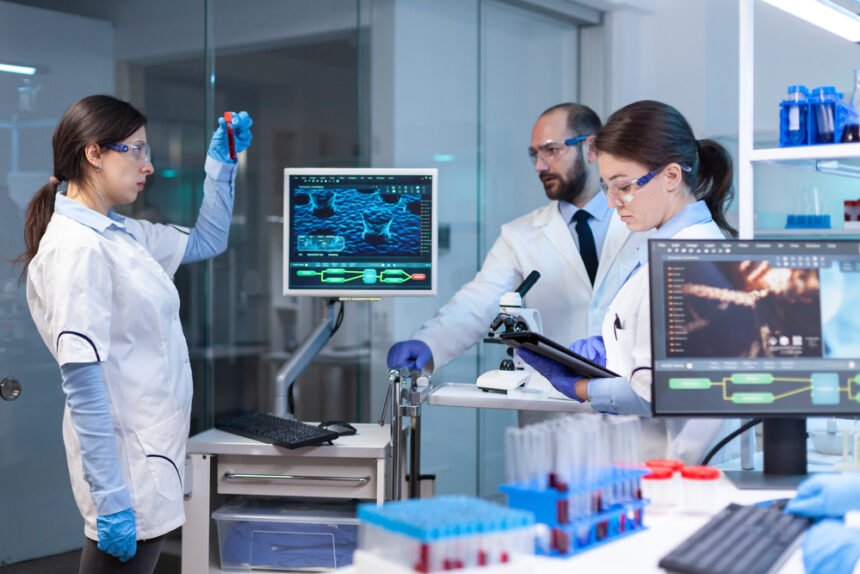Every year, cutting-edge technological advancements are adopted by virtually every industry, improving customer experiences and taking business operations to the next level. As one of the most critical sectors, Healthcare isn’t lagging behind. Technology is revolutionizing healthcare in spectacular ways.
Technology has been at the forefront of healthcare for decades. Last year, global healthcare providers spent over $142 billion on IT services alone. Expenditures on medical equipment and other technology were much higher.
Off-the-shelf and custom healthcare software solutions help clinics and hospitals deliver rewarding patient experiences, ensure the security of patient data, automate administrative tasks, streamline treatment, and improve overall efficiency. Let’s explore the top five technological trends shaping the Healthcare industry in 2023.
1. AI & ML
In 2019, The Royal College of Physicians released a report showing that AI has a number of great applications in healthcare. But what can it actually do?
Artificial intelligence (AI) means the imitation of the human brain by a computer system. Machine learning (ML) describes a subfield of artificial intelligence that uses algorithms to simulate the way humans learn, progressively enhancing its accuracy. Major applications of AI and ML in Healthcare include analyzing patient information and other data, improving diagnostics, developing new medicines, automating routine healthcare tasks, using virtual assistants and chatbots, etc.
2. Big Data Analytics
Big data can be defined as enormous data sets that can’t be processed by traditional software. Accordingly, big data analytics is the process of analyzing big data and identifying patterns to facilitate more informed decision-making. In Healthcare, big data analytics helps derive valuable insights from clinical data, which healthcare professionals can use to make more informed decisions on the diagnosis and treatment of patients, prevention of diseases, and maximizing the efficiency of healthcare organizations.
3. IoT
The Internet of Things (IoT) is a connected system of physical objects with sensors that can collect and exchange data with other devices over the Internet. IoT helps doctors effectively control their patients’ condition through wearables monitoring blood pressure, heart rate, blood glucose levels, etc., providing patients with personalized healthcare. In addition to monitoring patients’ health, IoT devices are used in hospitals for real-time tracking of medical equipment as well as monitoring temperature and humidity.
4. Cloud Computing
Cloud computing refers to accessing computing services through the Internet. These services include servers, databases, applications, storage, etc., hosted at a remote data center or “the cloud.” The primary goal of cloud computing is to provide instant access to IT services without having physical data centers and servers. Healthcare organizations are increasingly switching to the cloud to securely store EHR data and radiology images, sharing them only among authorized users, and provide healthcare professionals with on-demand access to applications and databases.
5. XR
Extended Reality (XR) is a blanket term describing immersive technologies — virtual reality (VR), augmented reality (AR), and mixed reality (MR). These technologies merge the physical environment with computer-generated elements or deliver entirely immersive virtual experiences. In Healthcare, XR is used for training medical staff and educating patients, streamlining hospital navigation, pain management (providing patients with calming environments), and treating psychological conditions, to name a few use cases.
Final Thoughts
Healthcare is constantly adopting state-of-the-art technological developments to promptly address the evolving needs of healthcare organizations and patients. Artificial intelligence, machine learning, big data analytics, the Internet of Things, cloud computing, and extended reality create exceptional opportunities for the Healthcare sector to ensure efficient data management, improve patient outcomes, and boost the overall efficiency of healthcare organizations.

